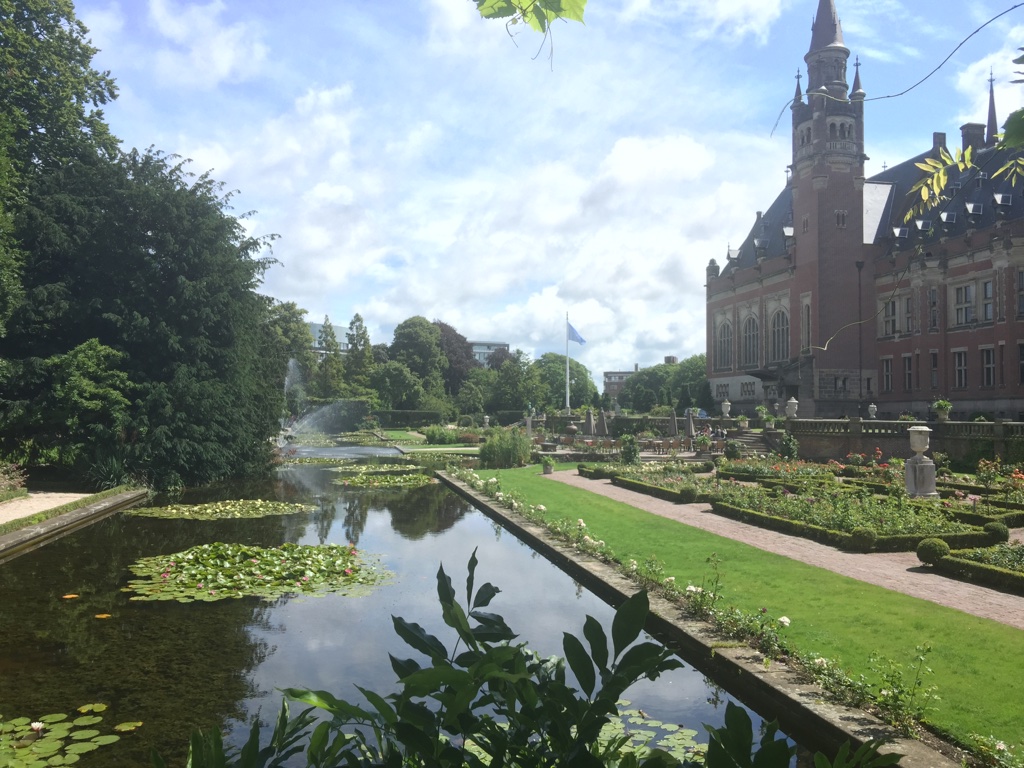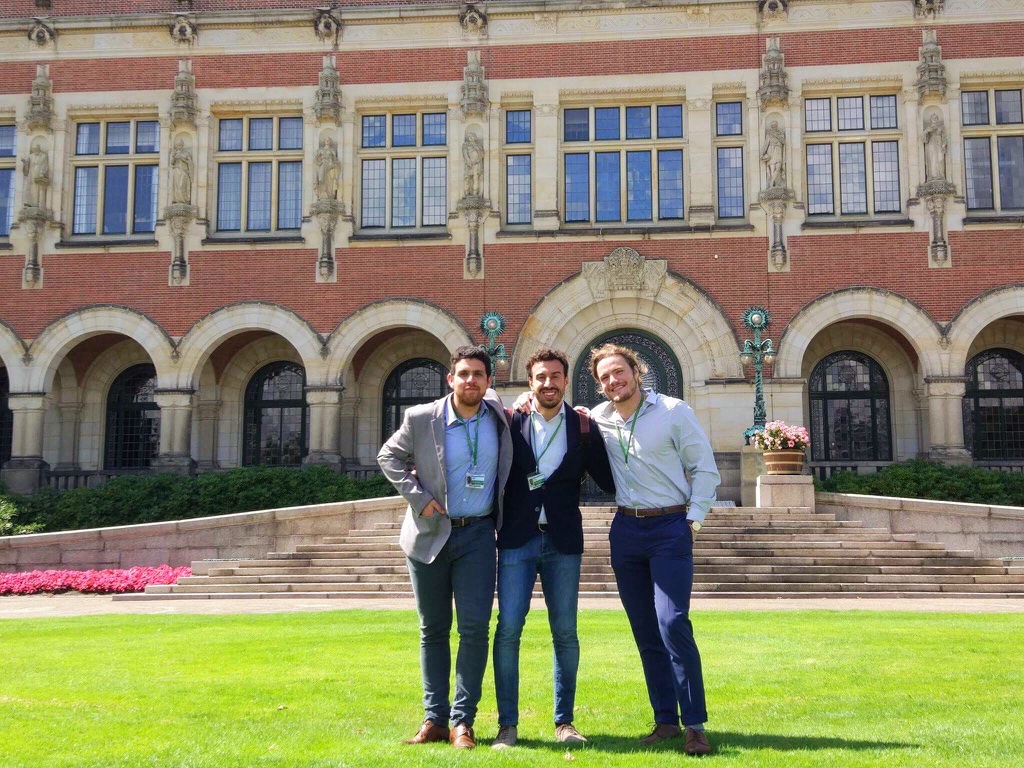By: Anton Krayniy
Humanity suffers from an ailment which individuals can rarely escape: the state of constantly overlooking the present in preparation for the future or setting it aside to brood over the past. This is even more prevalent in law school; when one is suffocating in her studies, she looks to the prospect of enjoying herself after. But when she finds time for leisure, she is preoccupied with worrying over the time she is losing or organizing how she will confront her next tasks. I began to believe this condition was unavoidable. The Hague Academy of International Law proved otherwise.
As soon as I stepped off the train at Den Haag Centraal, I noticed an air of ease and contentedness. The Dutch sky, glowing in a flawless Rembrandt imitation. I boarded the number 9 tram towards Schevinengen, where I was staying at the Skotel. The city was breathtaking; quaint colorful townhomes elbowed for space in a serene disorder, towers stretched their steeples to the clouds, bridges spanned the sunlit canals that spotted the city. The rich Dutch history of The Hague blended effortlessly with the advanced infrastructure that surrounded it.

The gardens of the Peace Palace.
The lectures themselves ranged from topics such as the International Protection of Vulnerable Persons under International Human Rights Law to Economic Sanctions Decided and Implemented Outside the United Nations. Each lecture series was taught by a different expert in the international law field. For example, the two aforementioned courses were taught by Stelios Perrakis, Emeritus Professor at Panteion University in Athens, and Jean-Marc Thouvenin, Professor at Paris Ouest Nanterre La Defense University, respectively. Lectures were taught either in French or English. If students that did not have a strong grasp of the language of one of these languages, they were provided wireless listening devices with on-the-spot translation.
Academy activities were not limited to lectures. The Academy worked with foreign diplomats to give students the opportunity to speak with ambassadors and step inside their embassies. I chose to visit the Chilean, Russian, Ukrainian, and Palestinian embassies. This was an incredible experience; to hear the ambassadors of these nations speak about their work and some of the political crises in which their countries are involved was unforgettable.
Yet, beyond all of the majesty of the Peace Palace and the incredibly interesting opportunities for academic and intellectual advancement, the most striking thing about my experience at The Hague Academy of International Law was the caliber of the students that surrounded me. My peers came from all across the globe. Some worked for law firms, some worked for the foreign ministry of their countries, and others were already completing their PhD in international law. I cannot overstate how inspiring it was to be surrounded by such brilliance. Beyond their intelligence, my peers were some of the most welcoming and outgoing people I have ever met. This combined to make something as simple as having coffee or a glass of wine into an eye-opening conversation about everything from international politics to comparisons of the social values of our different nations.
I believe that this element of my studies, in combination with the incredibly pertinent topics that I studied at the Academy, allowed me to finally acquire ever-evasive peace of mind. In The Hague, I was not mentally preoccupied with what I had to do in the future or how much I wished for leisure. I knew what I was doing was both furthering my career and incredibly enjoyable. I was happy and content with the present. I cannot thank the Whitney R. Harris World Law Institute enough for giving me this experience.

Dagen-Legomsky Hague Fellow Anton Krayniy with Hague Academy students in front of the Peace Palace.
